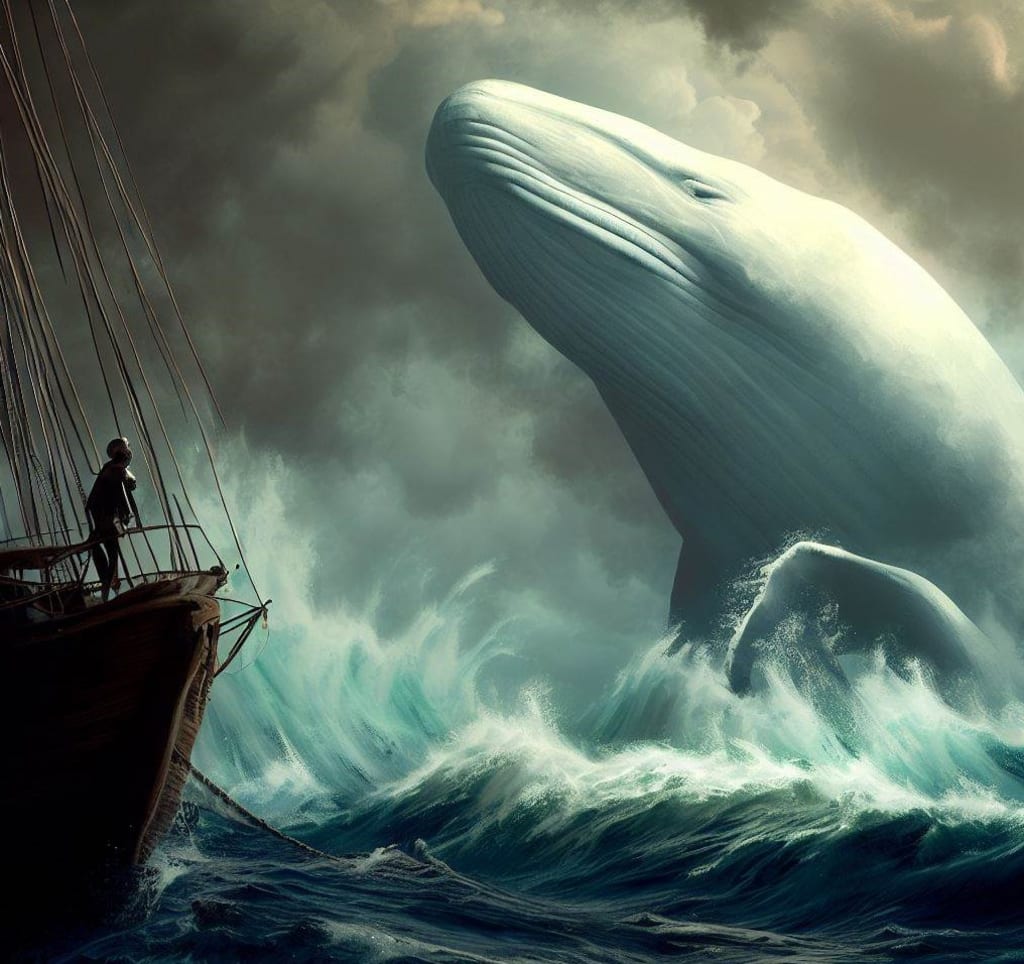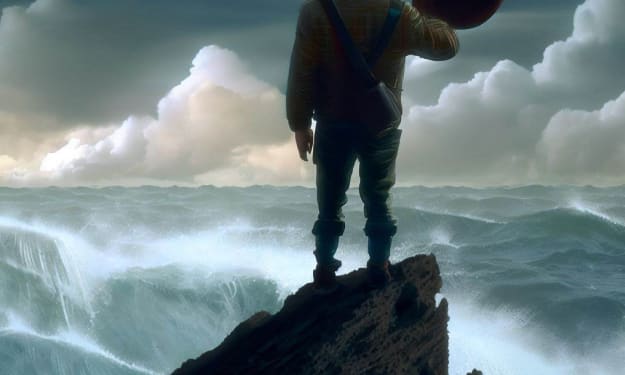
Moby Dick, an epic tale of adventure, revenge, and the tumultuous relationship between man and nature, stands as one of the greatest works of American literature. Written by Herman Melville and published in 1851, this timeless masterpiece continues to enthrall readers with its compelling narrative, rich symbolism, and profound exploration of the human condition.
Set against the backdrop of the 19th-century whaling industry, Moby Dick takes us on a remarkable journey aboard the whaling ship Pequod. The story is narrated by Ishmael, a young sailor with a thirst for adventure and a yearning to understand the enigmatic nature of the sea. As he embarks on this perilous voyage, Ishmael encounters a cast of diverse and intriguing characters, each harboring their own motivations and personal demons.
Central to the narrative is Captain Ahab, an imposing figure driven by an all-consuming obsession with the legendary white whale known as Moby Dick. Ahab's desire for revenge against the elusive creature, which took his leg during a previous encounter, becomes an all-encompassing force that shapes the fate of the ship and its crew. Melville masterfully crafts Ahab as a tragic figure, consumed by his desire for vengeance, even at the expense of his own humanity.
Melville's prose is both eloquent and poetic, drawing readers into the world of the whalers and immersing them in the harsh realities of life at sea. Through meticulous attention to detail, the author paints vivid scenes of the whaling industry, from the blood-soaked decks to the awe-inspiring presence of the whales themselves. Melville's descriptions not only capture the physicality of the whaling enterprise but also delve into the psychological and philosophical implications of this dangerous pursuit.
Beyond its gripping narrative, Moby Dick offers a profound exploration of mankind's relationship with nature and the inherent struggle for dominance. Ahab's relentless pursuit of Moby Dick represents humanity's insatiable desire to conquer and control the natural world, even in the face of its awesome power. Through this allegorical tale, Melville raises questions about the limits of human ambition and the consequences of unchecked hubris.
The characters in Moby Dick are intricately developed, each serving as a microcosm of the human condition. Ishmael, the observant and introspective narrator, offers readers a window into the complexities of Ahab's obsession and the destructive forces it unleashes. Ishmael's narrative voice provides a sense of reflection and introspection, allowing readers to contemplate the grand themes that permeate the novel.
Moreover, the diverse crew members of the Pequod add depth and nuance to the story. From the lively and jovial harpooneer Queequeg, whose friendship with Ishmael transcends cultural boundaries, to the stoic and philosophical Starbuck, the first mate torn between duty and his moral compass, each character offers unique perspectives on the human experience. Melville expertly weaves together these different personalities, exploring themes of identity, loyalty, and the frailties of the human psyche.
One of the most remarkable aspects of Moby Dick is its rich symbolism, which elevates the narrative to a deeper, metaphorical level. Moby Dick, the white whale, represents much more than a mere creature. It embodies the inscrutable forces of nature, the unknowable mysteries of the universe, and the existential questions that haunt humanity. A symbol of both awe and terror, Moby Dick transcends the boundaries of the physical world, becoming a metaphor for the inexplicable and the unattainable.
However, it's important to note that Moby Dick may not be accessible to every reader. Melville's prose can be dense and intricate, with frequent digressions and detailed descriptions that demand patience and concentration. This stylistic choice, while adding depth and richness to the novel, can pose a challenge for those seeking a straightforward narrative. Nevertheless, for readers willing to embark on this literary voyage, the rewards are immense.
In conclusion, Moby Dick stands as a testament to Herman Melville's literary genius and his ability to explore profound themes within a captivating story. Through its masterful storytelling, rich symbolism, and complex characters, this novel continues to captivate readers, offering insights into the depths of the human spirit and the intricate dance between man and nature. Moby Dick remains an enduring classic, reminding us of the timeless power of literature to illuminate the human experience.
About the Creator
Drab
Book Bloggers || Book Reviewer
Reader insights
Outstanding
Excellent work. Looking forward to reading more!
Top insight
Easy to read and follow
Well-structured & engaging content






Comments (1)
Great review, As a lover of Moby Dick, I appreciate your level of analysis. I actually just posted a piece on how Moby Dick changed my life. :D